Related Literature
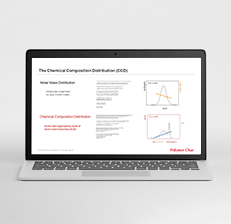
Webinar: What is Chemical Composition in Polyolefins and why it should be part of your GPC Analysis
Webinar Chemical Composition Distribution in Polylefins
Date: December 2022
Speaker: Alberto Ortín
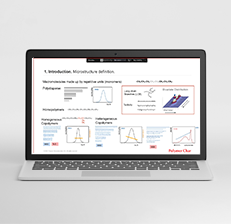
Webinar: Modern Separation Techniques for Polyolefin Microstructure Characterization
Webinar Modern Separation Techniques
Date: November 2021
Speaker: Alejandro Fernández
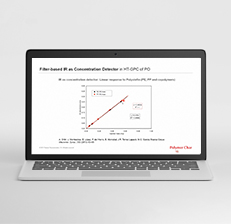
Webinar: Recent developments in the characterization of Polyolefins. An overview of modern separation techniques.
Webinar ABPol
Date: March 2021
Speaker: Alberto Ortín
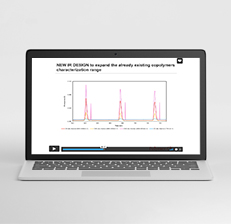
Webinar: Characterization of copolymers with carbonyl groups and other polyolefin applications by high temperature GPC-IR
SPE International Virtual Polyolefins Conference
Date: February 2021
Speaker: Esther López
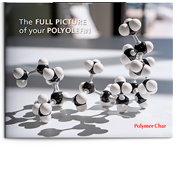
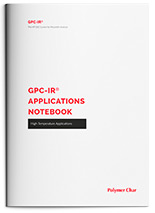
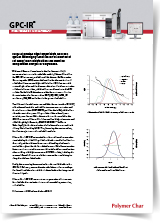
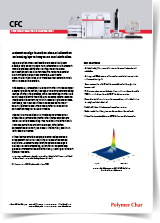

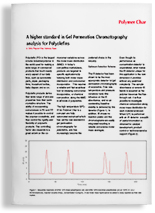
Application Note: A Higher Standard in Gel Permeation Chromatography Analysis for Polyolefins
Published in Eurolab, European Laboratory Technology.
June 2014. Pages 51-52
A. Ortín
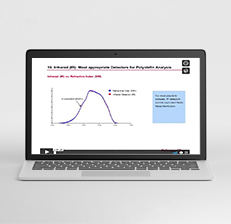
Webinar: Analytical and Engineering Advances in High Temperature GPC/SEC for Polyolefin Characterization
Webinar
Date: 2013
Speaker: Alberto Ortín
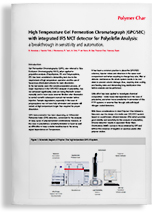
Application Note: GPC instrument with integrated Infrared Detector IR5 MCT for Polyolefin Analysis
Published in LCGC Europe
July 2012
Br. Monrabal, J. Sancho-Tello, J. Montesinos, R. Rarín, A. Ortín, P. del Hierro, M. Bas
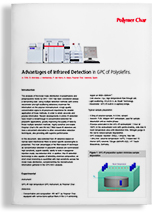
Application Note: Advantages of Infrared Detection in GPC/SEC Analysis of Polyolefins
Presented at the 3rd ICPC Conference
November 2011
A. Ortín, B. Monrabal, J. Montesinos, P. del Hierro, N. Mayo
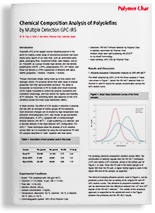
Application Note: Chemical Composition Analysis of Polyolefins by Multiple Detection GPC-IR5
Published in LCGC NA
July 2011
W. Yau, A. Ortín, P. del Hierro
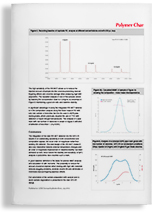
Application Note: Engineering Advances in High Temperature GPC/SEC Instrumentation
Published in The Column Advansatar Publications
Volume 7, Issue 7, 2011, Pages 8-15
April 2011
B. Monrabal, W. Yau
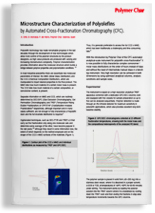
Application Note: Automated Cross-fractionation Chromatography (CFC)
Published in LCGC NA and EU
September 2010
A. Ortín, B. Monrabal, P. del Hierro
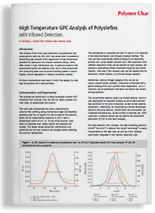
Application Note: High-Temperature GPC Analysis of Polyolefins with IR
Published in The Applications Notebook LCGC Asia Pacific
September 2009
B. Monrabal, J. Sancho-Tello
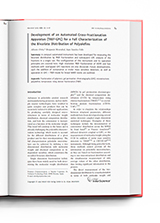
Catalytic Deconstruction of Ethylene Vinyl Acetate Copolymer and Polyethylene Mixtures via Hydroconversion: Challenges and Solutions
Published in: ACS Sustainable Chem. Eng. 2024, 12, 23, 8717–8728
May 2024
Authors: Pedro Moura, Pavel A. Kots, Brandon C. Vance, Zoé O.G. Schyns, Sean Najmi, Zachary R. Hinton, Caitlin M. Quinn, Thomas H. Epps III, LaShanda T.J. Korley, and Dionisios G. Vlachos

A novel approach for accurate determination of polyethylene and polypropylene content in polyolefin blends and recyclates by cross-fractionation chromatography
Published in: Polymer Testing Volume 131, Article 108351
February 2024
Authors: Magdalena Gora, Davide Tranchida, Andreas Albrecht, Alejandro J. Müller, Dario Cavallo

Influence of high temperature GPC/SEC detection modes on the accurate molar mass estimation of slurry phase multimodal HDPE reactor materials
Published in: Journal of Elastomers and Plastics
February 2024
Authors: Yogesha Subbaiah, Qua Eng Hau, Ghazai Miqad Al Otaibi

High temperature-size exclusion chromatography with triple detection to assess the molecular architecture of low-density polyethylene: Insight into branching and processability correlations
Published in: Journal of Separation Science, Volume 47, Issue 2, 2300748
January 2024
Authors: Yogesha Subbaiah, Senthilkumar Shanmugam, Qua Eng hau

20 Years of polyolefin HPLC: Accomplishments and challenges
Published in: European Polymer Journal, Volume 200, 112491
November 2023
Authors: Harald Pasch, Paul Eselem Bungu
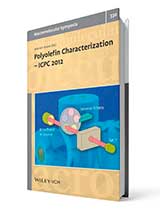
Poly(propylene) Heterophasic Copolymers: Molecular Structure Analysis through Fractionation Techniques
Published in: Macromolecular Symposia. Polyolefin Characterization, ICPC 2012.
Volume 330, 2013, Pages 30-41.. Wiley-VCH.
Authors: S. Liberman, A. P. de Azeredo, F. P. Dos Santos, M. A. da Silva, B. Monrabal, N. Mayo

Characterization of Chemical Composition along the Molar Mass Distribution in Polyolefin Copolymers by GPC Using a Modern Filter-Based IR Detector
Published in: Macromolecular Symposia. Polyolefin Characterization, ICPC 2012.
Volume 330, 2013, Pages 63-80. Wiley-VCH.
Authors: A. Ortín, J. Montesinos, E. López, P. del Hierro, B. Monrabal, J.R. Torres-Lapasió, M.C. García-Álvarez-Coque.

Filter-based infrared detectors for high-temperature size exclusion chromatography analysis of polyolefins: calibration with a small number of standards and error analysis.
Published in: Journal of Chromatography A.
Volume 1257, 2012, Pages 66-73.
Authors: Alberto Ortin, E. Lopez, B. Monrabal, J. R. Torres-Lapasio, M. C. Garcia-Alvarez-Coque.
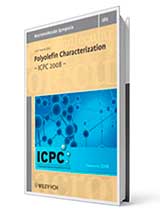
Application of a Multiple Linear Regression Model to Fixed Bands IR Detector Data in GPC-IR Analysis of Polyolefins
Published in: Macromolecular Symposia. Polyolefin Characterization, ICPC 2008.
Volume 282, 2009, Pages 65-70. Wiley-VCH.
Authors: A. Ortín, B. Monrabal, J. Montesinos, P. del Hierro.
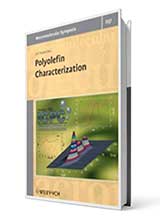
Synthesis and Characterization of Ethylene/Propylene Copolymers in the Whole Composition Range
Published in: Macromolecular Symposia. Polyolefin Characterization, ICPC 2006.
Volume 257, 2007, Pages 122-130. Wiley-VCH.
Authors: M. J. Caballero, I. Suarez, B. Coto, R. V. Grieken, B. Monrabal.

Development of an Automated Cross-Fractionation Apparatus (TREF-GPC) for a Full Characterization of the Bivariate Distribution of Polyolefins
Published in: Macromolecular Symposia. Polyolefin Characterization, ICPC 2006.
Volume 257, 2007, Pages 13-28. Wiley-VCH.
Authors: A. Ortín, B. Monrabal, J. Sancho-Tello.
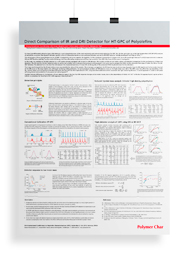
Poster: Reduction of solvent consumption in polyolefin characterization techniques
Poster
Presented at the 8th ICPC
2023

Poster: Supporting the sustainability of polyolefins developing analytical methods for recycled materials
Poster
Presented at the 8th ICPC
2023

Poster: GPC-IR analysis of PET and PE-PET blends, a new application field of filter-based IR detector
Poster
Presented at the 8th ICPC
2023

Poster: Studies on the use of filter-based IR detector for short-chain branching characterization of polyolefin copolymers with HT-SEC
Poster Presented at the 7th ICPC
2018

Poster: Characterization of Ethylene Vinyl Acetate copolymers by chemical composition distribution and molar mass distribution techniques
Poster
Presented at the 7th ICPC
2018

Poster: Novel GPC triple detector approaches for branching analysis in PE
Poster
Presented at the 6th ICPC
2016

Poster: Deconvolution of PP-PE mixtures using measured chromatograms by multiple band IR detector
Poster
Presented at the 6th ICPC
2016

Poster: Infrared detection in high temperature GPC/SEC of Polyolefins
Poster
Presented at the GPC Conference
2015

Poster: GPC analysis at different flow rates to overcome shear degradation
Poster
Presented at the 5th ICPC
2014

Poster: Direct comparison of IR and DRI detector for HT-GPC of Polyolefins
Poster
Presented at the 5th ICPC
2014

Poster: Moving from TCB to o-DCB Solvent in High-temperature GPC/SEC
Poster
Presented at the 4th ICPC
2012

Poster: Influence of Comonomer Type on the Calibration of Filter-based IR Detector in GPC-IR
Poster
Presented at the 4th ICPC
2012

Poster: Improvements in Sample Preparation of Polyolefins to prevent Polymer Degradation prior to GPC/SEC and CEF analysis
Poster
Presented at the 4th ICPC
2012

Poster: Applications of the Integrated IR5 MCT Detector in GPC/SEC with Improved Sensitivity and Stability for Polyolefin Analysis
Poster
Presented at the 4th ICPC
2012

Poster: Advances in Polyolefin Characterization – CFC and HT-HPLC Techniques
Poster Presented at the 8th International Colloquium on Heterogenous Ziegler-Natta Catalysts
2012

Poster: Advanced High Temperature Gel Permeation Chromatography (GPC/SEC) System for Polyolefin Analysis
Poster
Presented at the Agilent Technologies EMEA IDO Training Conference
2012

Poster: Improved Detection in GPC-SEC of Polyolefins by integrated Infrared Detector
Poster
Presented at the APST
2011


Advantages of Infrared Detection in GPC of Polyolefins
Poster
Presented at the 3rd ICPC
2010

Poster: Development of a MCT-IR Detector for GPC-SEC Analysis in PE
Poster
Presented at the 1st ICPC
2006
Document Request
To receive a copy by email please check the boxes above and complete the following form. Thank you for your interest.